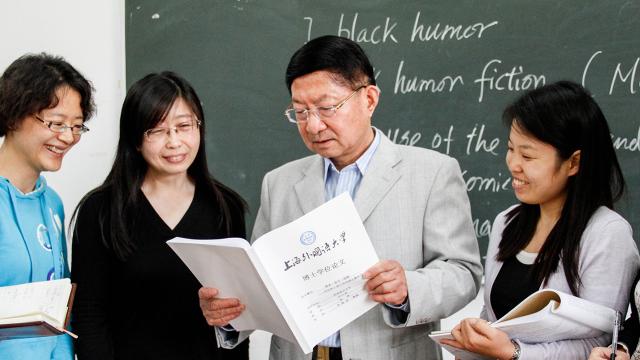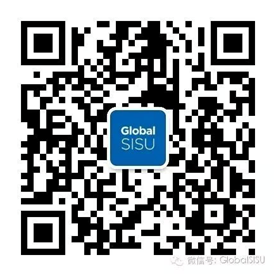Resource:http://en.shisu.edu.cn/resources/news/a-sisu-professor-special-rules-for-phd-students
“ |
Ph.D. students are not allowed to discuss papers with me during their first-year study,” Professor Li Weiping of Shanghai International Studies University (SISU) said. This is only one key to his philosophy of education.
Li, a professor of English at SISU’s School of English Studies, is one of the university’s most popular doctoral tutors, because his students won the “Shanghai Excellent Doctoral Dissertation” program three times from 2012 through 2014.
Concentration on people, not on papers
Li tends to spend more time on students themselves than on their papers to understand the situation and progress of each individual student and tailoring his teaching approaches accordingly. “When students’ interest in research is encouraged, the quality of their papers can be improved,” he said.
He asks Ph.D. candidates to listen really well, discuss those readings, and also do extensive extra-curricular reading starting the first semester. “Only by strengthening the study on fundamental theories, can students write a great article. I hope students can ignore distractions, start with a grounded devotion to their courses and engage in scholarship,” Li said.
To make admissions decisions, he prefers interviewing applicants over written examinations, and prefers critical thinking abilities over memorization. Cheng Huijuan, one of Li’s doctoral students who won the 2013 “Shanghai Excellent Doctoral Dissertation” competition, said that Li often reminds students that learners must be inquisitive, never blindly follow the statements of others nor work to become famous.
Students before self
Li acknowledges that it is becoming increasingly difficult to maintain strong teacher-student relationships in Chinese universities because of increasing opportunities for students to study abroad and growing pressure on professors to conduct scientific and social scientific research. “I will choose to turn inward and work on myself rather than complain,” Li said.
Li makes suggestions for revisions as his doctoral students submit their papers to him, even if he is busy with own studies. He asked: “How could tutors purposely delay reviewing their students’ papers owing to their personal benefit?”
The papers Li has reviewed are always full of annotations and comments, ranging from dozens to hundreds on a page, which involve frame, topic, logic and punctuation.
Rebuilding research spirit
Li Weiping teaches so well that doctoral students of other majors often audit his courses. “Li is good at quoting extensively and analyzing in detail, so I can digest knowledge easily and employ it flexibly,” one of his students said
In eyes of Li’s students, the teacher first teaches the academic’s life and learning. Cheng Huijuan said: “I learn from Li that the spirit of independence and freedom in thinking is particularly important in academic studies and research. The talent of youth students can provide motives and success in knowledge as the basis of being an upright person.”
Many of Li’s students work as teachers after graduation and quickly engage in research programs supported by national research funds for social sciences and humanities.
Li said: “Conquering and adjusting the doctoral students’ blundering psychology must depend upon the joint efforts of students themselves, supervisors, universities and society. The best way to educate others is by your good example.”




